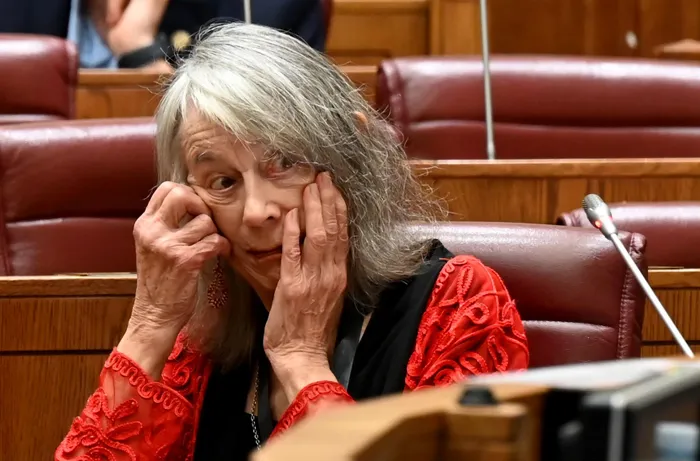
UKZN Statement: Violence Monitor Mary De Haas's True Academic Status Revealed After Parliament Inquiry
Image: Ayanda Ndamane/Independent Newspapers
In response to mounting inquiries following Mary De Haas’s recent testimony before Parliament’s Ad Hoc Committee, the University of KwaZulu-Natal (UKZN) has issued a statement clarifying her ties to the institution.
De Haas, a prominent figure in the hearings, came under intense scrutiny after it emerged that she lacks formal qualifications in security or policing, despite being referred to by some officials as a “professor” and a security analyst.
She played a controversial role in the committee’s probe, particularly after successfully requesting that suspended Minister Senzo Mchunu disband the Political Killings Task Team (PKTT). This instruction generated significant public concern among many South Africans.
In its statement, the University of KwaZulu-Natal confirmed that De Haas is not an employee and is not a professor at UKZN.
On Wednesday, Normah Zondo, UKZN’s Corporate Relations Executive, said that De Haas retired from the former University of Natal in 2002, where she served as a Senior Lecturer and Programme Director in Social Anthropology.
"The University of Natal merged with the University of Durban-Westville in 2004 to form UKZN. Since then, De Haas’s only formal link to the institution is as an Honorary Research Fellow in the School of Law - a purely honorary role without employment or teaching responsibilities.
“While she has collaborated with members of the Navi Pillay Research Group, her current research, including work on violent crime and policing, is conducted independently from the University,” the statement added.
The university declined to comment on the substance of De Haas’s testimony before Parliament.
During the parliamentary session, ANC Chief Whip Mdumiseni Ntuli and David Skhosana (MK party) questioned De Haas sharply about her academic credentials and professional expertise.
Ntuli challenged why a person without formal security training was advising senior government officials on sensitive policing matters.
Skhosana echoed concerns about the reliability of her analysis and the basis for her recommendations, insisting lawmakers needed clarity on her qualifications.
In her defense, De Haas admitted she is not a professor and acknowledged that the title had been attributed to her by others over time.
She admitted she has no formal security training but asserted her expertise stems from decades of research and independent monitoring of violence and policing issues.
She maintained that her advice and observations were grounded in years of experience and that she had carefully considered the implications of her guidance during the committee hearings.
However, when pressed, she was unable to present formal evidence or identify sources for some of her claims, raising questions about the robustness of her testimony.
Political and governance expert Sandile Swana commented on the confusion surrounding De Haas's credentials, stating that there has been a misunderstanding about De Haas’s formal standing and expertise.
“It is crucial for individuals and institutions alike to clearly communicate the nature of an individual’s affiliation to avoid misleading the public about their authority on sensitive national issues,” said Swana.
thabo.makwakwa@inl.co.za
IOL Politics